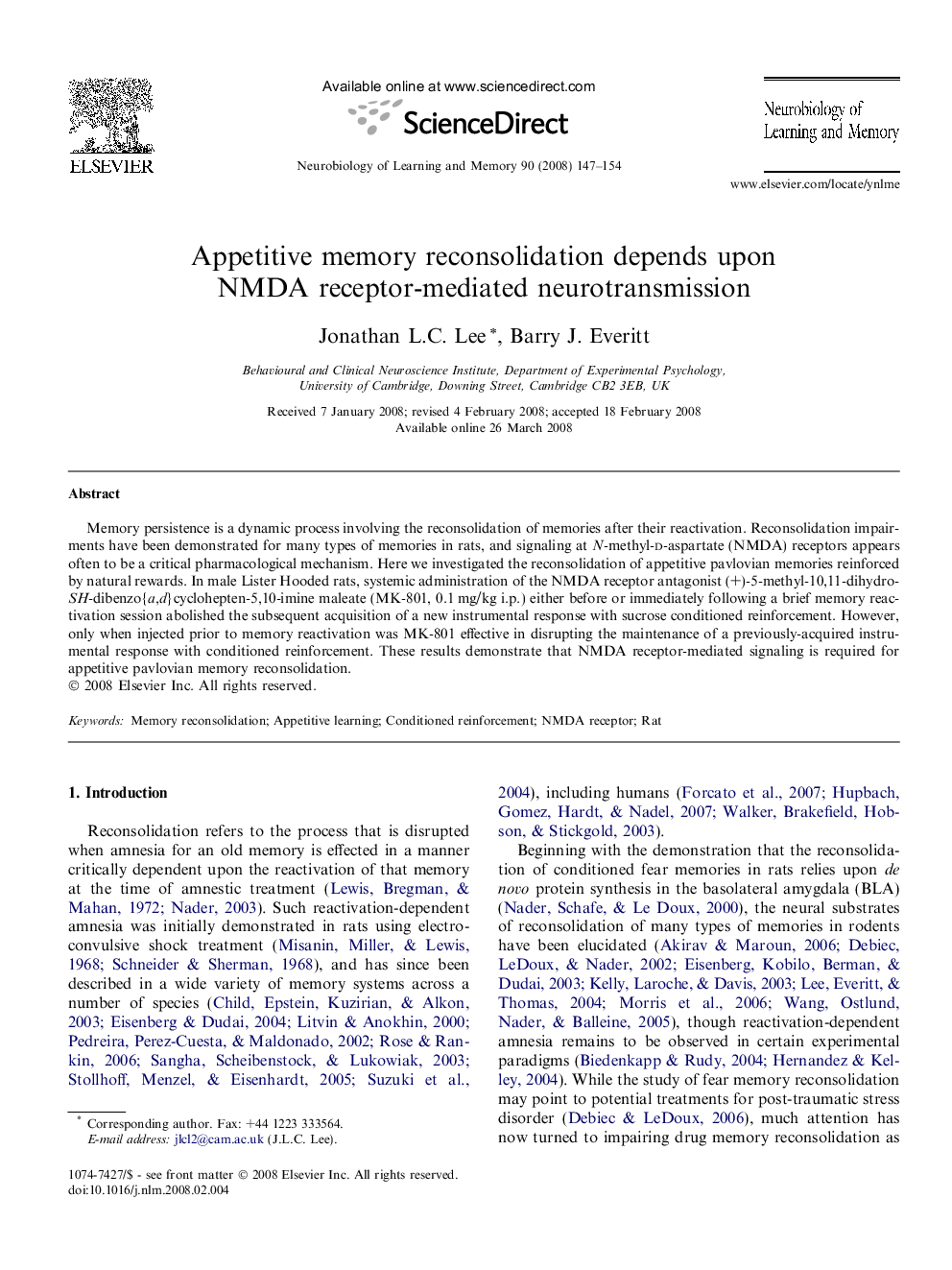| Article ID | Journal | Published Year | Pages | File Type |
|---|---|---|---|---|
| 937182 | Neurobiology of Learning and Memory | 2008 | 8 Pages |
Memory persistence is a dynamic process involving the reconsolidation of memories after their reactivation. Reconsolidation impairments have been demonstrated for many types of memories in rats, and signaling at N-methyl-d-aspartate (NMDA) receptors appears often to be a critical pharmacological mechanism. Here we investigated the reconsolidation of appetitive pavlovian memories reinforced by natural rewards. In male Lister Hooded rats, systemic administration of the NMDA receptor antagonist (+)-5-methyl-10,11-dihydro-SH-dibenzo{a,d}cyclohepten-5,10-imine maleate (MK-801, 0.1 mg/kg i.p.) either before or immediately following a brief memory reactivation session abolished the subsequent acquisition of a new instrumental response with sucrose conditioned reinforcement. However, only when injected prior to memory reactivation was MK-801 effective in disrupting the maintenance of a previously-acquired instrumental response with conditioned reinforcement. These results demonstrate that NMDA receptor-mediated signaling is required for appetitive pavlovian memory reconsolidation.
